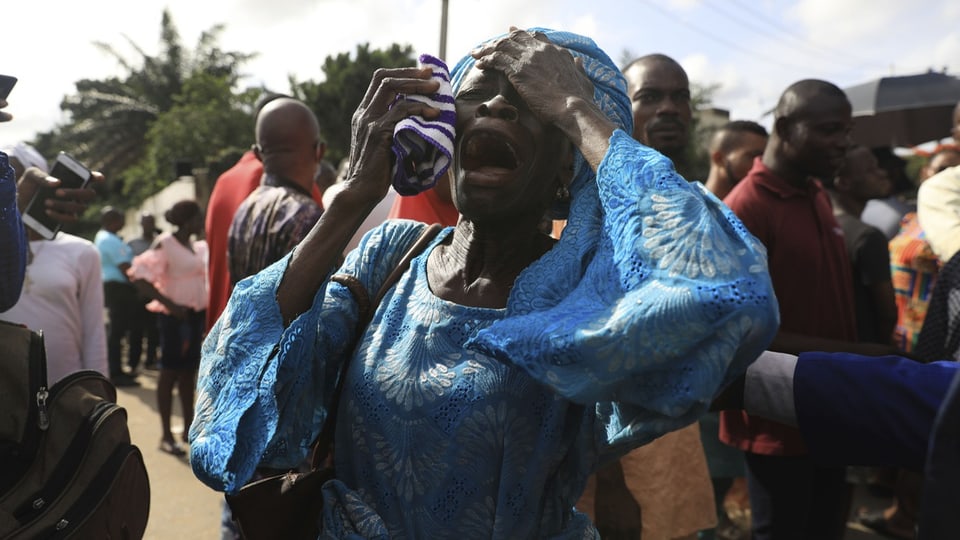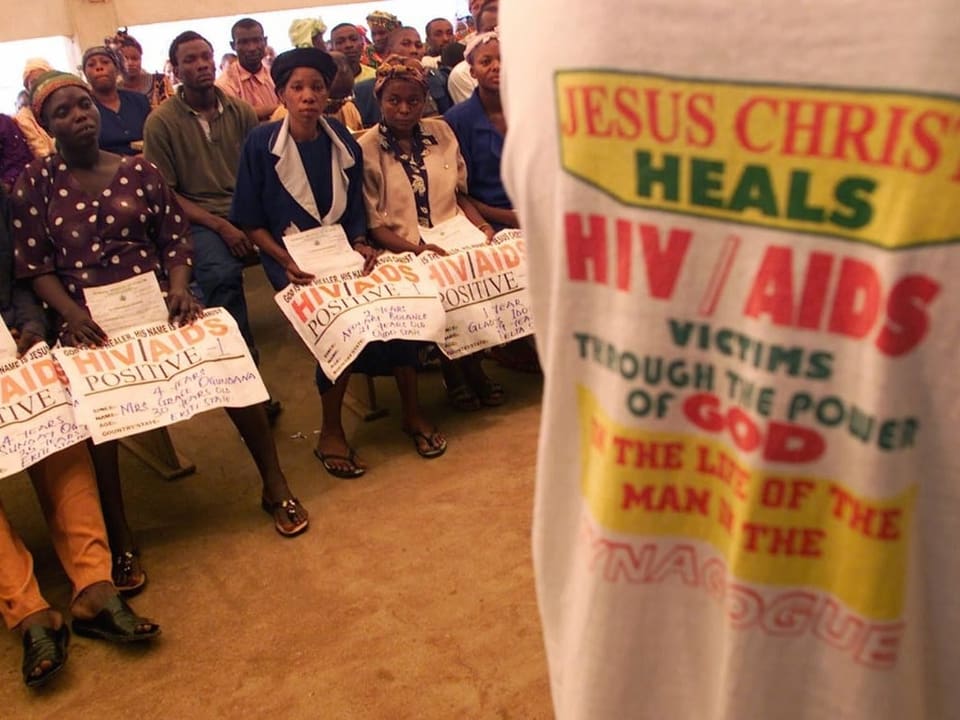Contents
From preacher to tormentor: TB Joshua presented himself as a miracle healer and seduced the masses. Posthumously, another side comes to light.
With his televised sermons he reached millions of people in Africa and around the world. Now research by the British BBC shows what a disturbing double life the evangelical pastor TB Joshua apparently led: He is said to have held women from his church captive and raped them for decades.
Legend:
TB Joshua died in 2021 at the age of 57. In his TV sermons he claimed to be able to perform miracles – such as curing AIDS or making the blind see again.
BBC News
In the documentary, several alleged victims tell how the pastor is said to have beaten, raped and forced them to have abortions in his property in the metropolis of Lagos.
The Nigerian founded one of the megachurches that have enormous influence in Africa’s most populous country. During his career he accumulated great wealth; he traveled by private jet and owned a fleet of sports cars. The pastor toured African countries, South America, Great Britain and the USA.

Legend:
Hope for a miraculous cure: Tens of thousands of people from Nigeria and around the world regularly attended TB Joshua’s sermons in Lagos, Nigeria’s largest city. Image: Follower mourns the deceased preacher in 2021.
Keystone/AP
Journalist Bettina Rühl reports from the Kenyan capital Nairobi. She researched Nigeria’s evangelical churches and attended one of TB Joshua’s “wild, ecstatic services.” In Nigeria there are only a few voices calling for the events to be dealt with in response to the BBC report. “Many people are very church-friendly and keep the whole thing away from themselves.” In addition, such reports are often dismissed as false reports.
The late preacher’s church rejects the allegations. The journalist estimates that she hardly has to expect any “tangible consequences” anyway. “There is great leniency for everything that has to do with religion.” In addition, politicians and authorities are cautious when it comes to taking on the powerful free churches.
Lifeline for the poor
In the past there were certainly tensions between the Christian preacher and the state. For example, during the Ebola outbreak in West Africa in 2014, when authorities in Lagos feared that Joshua’s followers from the heavily affected countries of Sierra Leone, Liberia and Guinea would bring the virus into the city.
Evangelical churches are very popular in Nigeria and far beyond. According to Rühl, their rise goes back to the oil boom of the 1970s. For a few, this meant great wealth, but it also brought massive economic upheaval. “With the collapse of oil prices on the world market from the 1980s onwards, many people became impoverished.”
All-encompassing promises of salvation
The evangelicals’ promises of salvation offered many of them support: “The churches promised hope, even if practices like witchcraft seem irrational to us.” They also took the place of the ailing state, in which there are hardly any social benefits: “They promise to cure illnesses, help with careers and with very specific concerns such as marital problems.”
The large evangelical churches in Nigeria have now grown into “multinational religious corporations” – with considerable economic and political influence. “They run religious training centers, hospitals, schools and universities. Anyone who belongs to one of these churches feels completely protected,” concludes Rühl. Pastors in particular are often very rich. “And they’re not ashamed of it either. Because their wealth is an expression of the fact that God is at their side.”


